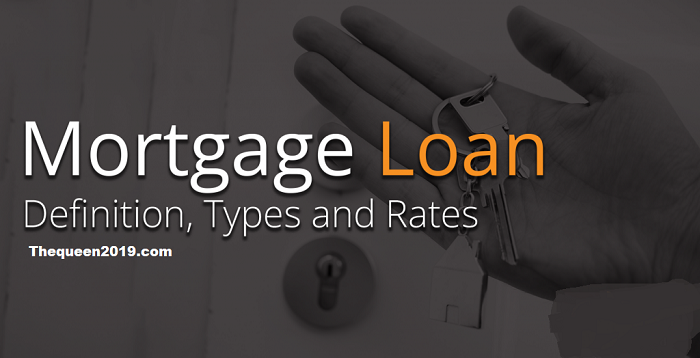Borrowed Homes: A Poetic Guide to Mortgage Realms
SEO Meta-Description: Looking for insights on Mortgage Loan: Definition, Types and Rates? Dive into this comprehensive guide to understand the various types, rates, and factors affecting mortgage loans. Discover tips on finding the right mortgage for you and navigating the application process seamlessly.

Introduction
Embarking on the journey of homeownership is an exciting yet intricate endeavor. At the core of this process lies the concept of mortgage loans. Understanding the nuances of mortgage loans is paramount for anyone considering purchasing a home or refinancing an existing mortgage. In this guide, we delve into the depths of Mortgage Loan: Definition, Types and Rates, providing you with essential insights to navigate the realm of home financing confidently.
Understanding Mortgage Loans
Mortgage loans serve as a financial instrument that enables individuals to purchase or refinance real estate properties without paying the full purchase price upfront. Instead, borrowers secure the loan with the property itself, often referred to as collateral. This arrangement allows borrowers to make manageable monthly payments over an extended period, typically spanning several years or decades.
Different Types of Mortgage Loans
Fixed-Rate Mortgages
Among the myriad of mortgage options available, fixed-rate mortgages stand out as a popular choice for many homeowners. With a fixed-rate mortgage, the interest rate remains constant throughout the loan term, providing borrowers with stability and predictability in their monthly payments.
Adjustable-Rate Mortgages
Contrary to fixed-rate mortgages, adjustable-rate mortgages (ARMs) feature interest rates that fluctuate over time, typically in response to changes in market conditions. While ARMs offer initial lower rates, borrowers must be prepared for potential rate adjustments in the future.
FHA Loans
Federal Housing Administration (FHA) loans are government-backed mortgages designed to assist first-time homebuyers and individuals with less-than-perfect credit histories. These loans often require lower down payments and offer more lenient qualification criteria compared to conventional mortgages.
VA Loans
VA loans are exclusive to eligible veterans, active-duty service members, and their spouses. Backed by the Department of Veterans Affairs, these loans boast competitive interest rates and flexible terms, making homeownership more accessible to military personnel and their families.
USDA Loans
USDA loans, backed by the U.S. Department of Agriculture, cater to homebuyers in rural and suburban areas. These loans feature zero down payment options and favorable terms, making them an attractive choice for individuals seeking homeownership in less densely populated regions.
Mortgage Rates and Factors Affecting Them
The interest rate attached to a mortgage loan plays a pivotal role in determining the overall cost of homeownership. Several factors influence mortgage rates, including:
Credit Score
Your credit score serves as a reflection of your creditworthiness and plays a significant role in determining the interest rate you qualify for. Generally, borrowers with higher credit scores are eligible for lower interest rates, while those with lower scores may face higher rates or difficulty securing financing.
Down Payment
The amount of money you put down upfront when purchasing a home, known as the down payment, can impact your mortgage rate. A larger down payment often translates to a lower interest rate, as it signifies lower risk for lenders.
Loan Term
The length of your loan term, or the duration over which you repay the loan, can influence your mortgage rate. Typically, shorter loan terms come with lower interest rates but higher monthly payments, while longer terms may offer higher rates but lower monthly payments.
Interest Rate
Mortgage rates fluctuate based on broader economic factors, including inflation, economic growth, and monetary policy. Keeping a pulse on market trends can help borrowers secure favorable rates when the time is right.
Economic Factors
External economic factors, such as inflation rates, unemployment levels, and housing market conditions, can also impact mortgage rates. Understanding these factors can provide valuable insights into the direction of interest rates and help borrowers make informed decisions.
Finding the Right Mortgage for You
With a myriad of mortgage options available, finding the right one can seem daunting. However, by following these key steps, you can streamline the process and find a mortgage that aligns with your needs and financial goals.
Research and Comparison
Take the time to research various mortgage lenders and loan products to compare rates, terms, and fees. Consider reaching out to multiple lenders to obtain pre-approval offers and negotiate terms that work best for you.
Mortgage Pre-Approval
Obtaining pre-approval for a mortgage can give you a competitive edge when shopping for a home. Pre-approval not only signals to sellers that you’re a serious buyer but also provides you with a clear understanding of your budget and borrowing capacity.
Working with a Mortgage Broker
Mortgage brokers act as intermediaries between borrowers and lenders, helping you navigate the complexities of the mortgage market. A skilled broker can provide invaluable guidance and access to a wide range of loan options tailored to your unique circumstances.
Understanding Terms and Conditions
Before committing to a mortgage, carefully review the terms and conditions outlined in the loan agreement. Pay close attention to factors such as interest rates, loan duration, prepayment penalties, and any potential fees or charges.
Applying for a Mortgage Loan
Once you’ve identified the right mortgage for your needs, it’s time to initiate the application process. While the specific requirements may vary depending on the lender and loan product, the following steps are typically involved:
Documentation
Gather essential documentation, including proof of income, tax returns, employment history, and asset statements. Providing thorough and accurate documentation is crucial for a smooth application process.
Application Process
Complete the mortgage application provided by your chosen lender, ensuring all required fields are


